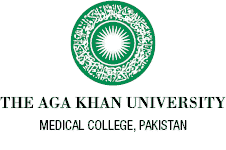Meet the Team:
• Dr. Azra Pechuho, Patron-in-Chief & Minister of Health, Government of Sindh
• Dr. Prof. M. Asim Beg, Chair MEC, Professor, Laboratory and Pathology Aga khan University
• Dr. Altaf Lal, Advisor
• Dr. Muhammad Mukhtar (Former Director DoMC)
• Dr Ahmed Faisal (Director DoMC),
• Dr. Mushtaq Ahmed Syed and Dr. Abdul Hameed (VBD Government)
• Mr. Abid Hasan, Director, Zenysis Technologies,
• Dr. Najia Ghanchi (Vice Chair and Associate professor, Laboratory Medicine and Pathology, Aga Khan University)
Collaborators
GLIDE – Global Institute for Disease Elimination, headquartered in Abu Dhabi, UAE, is a key strategic partner in Pakistan’s malaria elimination efforts. Established through a collaboration between the Crown Prince Court of Abu Dhabi and the Bill & Melinda Gates Foundation, GLIDE is dedicated to accelerating the elimination of preventable infectious diseases, including malaria, polio, river blindness, and lymphatic filariasis. As a thought leader and catalyst for action, GLIDE provides technical expertise, funding support, and global visibility to initiatives like the Malaria Elimination Consortium. Through its partnership with institutions such as Aga Khan University and Zenysis Technologies, GLIDE plays a critical role in shaping innovative, data-driven approaches to achieve malaria elimination in Pakistan by 2035.
Service Scope
The collaboration encompasses a comprehensive range of services designed to strengthen malaria elimination efforts across Pakistan. Core services include the establishment and quality assurance of malaria slide banks, capacity building of laboratory and field personnel, and technical assistance in diagnostic protocols. The scope further extends to surveillance enhancement, including data collection, validation, and interpretation—supported through advanced analytics platforms like Zenysis Technologies. The consortium also supports the development of SOPs, monitoring tools, and training manuals aligned with WHO and national guidelines.
A significant component of this initiative is the implementation of the Thatta Malaria Elimination Plan (2025–2029)—a focused, district-level strategy tailored to the local epidemiological context. Under this plan, activities include intensified case detection, entomological monitoring, enhanced community engagement, and strengthened response mechanisms to achieve local elimination targets. Strategic planning support is also provided for micro-stratification, outbreak response, and operational research. All services are delivered within an integrated framework that connects federal, provincial, and academic stakeholders, driving progress toward the national goal of malaria elimination by 2035.


